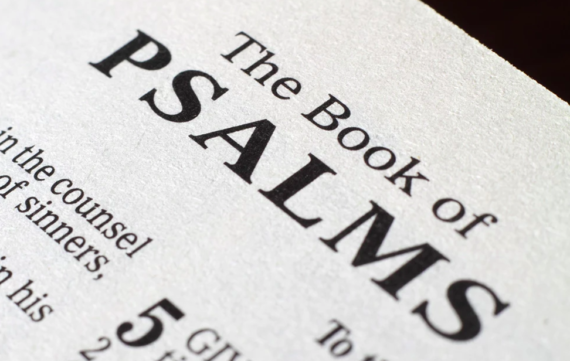This basically is a repeat of Psalm 14. But we will not skip it. If the Lord thinks we need a repeat, we need a repeat. In our thoughts on this psalm we will focus mainly on the first and the final verses.
The fool says in his heart, “There is no God.” They are corrupt, doing abominable iniquity; there is none who does good. (1)
Grammar
Grammatically, let us consider the use of the word “fool.” Sometimes there are specialized uses of a word. What is a “fly”? To most people, this word refers to an insect; to baseball fans, it refers to a ball hit in the air; to fishermen, to a lure for catching fish.






The word “fool” has specialized meanings as well. Many people called “fools” in the Bible are highly intelligent. What they lack is not wits but faithfulness or loving kindness.
The one who does not show faithfulness to God by showing loving kindness to his fellow creatures, has, in effect, said in his heart “there is no God.”
This is not a passage so much about theoretic atheism, but practical atheism. By most measures of intelligence, the persons called fools here might have ranked as highly intelligent. The foolishness of their way is seen only in relation to the eternal perspective.
History
Historically, let us consider how the psalm may have been understood at various times.
During the United Kingdom, it might have been easy to identify the “fools” as pagan nations. During the decline of Israel and Judah this tendency may have increased, although more faithful Israelites may have also included unfaithful Israelites, perhaps especially oppressive rulers as the fools to whom it refers.
During the exile these same two identifications would surely have been made, but some “faithful” Israelites began to see that they had not in fact been truly faithful (see Neh 9). Nehemiah and even Daniel seemed to consider that they had all been unfaithful, and therefore foolish.
Certainly, the New Testament makes it clear how Christians are to apply this psalm. The fools referred to are not just overt atheists who deny God with their mouths, but practical atheists who deny him with their actions. Even God’s people are included — perhaps they are especially included (Rom 3:19, 23). In other passages Paul paints a very dim view of human nature (1 Cor. 2:14).
In other Psalms we will meet similar statements of the universality of sin (Psalm 143:2). We are all sinners. We are all in danger of terrible thoughts and actions. (Jer 17:9). Salvation still comes but it comes from God, not by means of our goodness.
Oh, that salvation for Israel would come out of Zion! When God restores the fortunes of his people, let Jacob rejoice, let Israel be glad. (6).
This psalm is not about the fool next door, or the one in the next pew. It is about the fool we look at in the mirror every morning — the one who claims to believe in God, but sometimes acts as if God is not watching.
It is about those who say, “I serve the God who made heaven and earth, but, right at the moment, I am running away from him” (as did Jonah).

